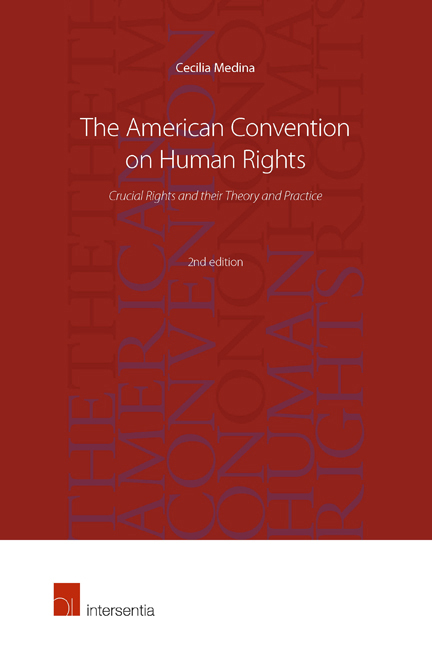Book contents
- Frontmatter
- Dedication
- Preface
- Acknowledgments
- Contents
- Table of Cases
- 1 The Court and its Circumstances
- 2 Disappearances
- 3 Right to Life
- 4 Right to Humane Treatment
- 5 Right to Personal Liberty
- 6 Right to Due Process
- 7 Principle of Legality, Freedom from Ex Post Facto Laws, and Right to Compensation for Miscarriage of Justice
- 8 Right to Judicial Protection
- Index
5 - Right to Personal Liberty
Published online by Cambridge University Press: 12 December 2017
- Frontmatter
- Dedication
- Preface
- Acknowledgments
- Contents
- Table of Cases
- 1 The Court and its Circumstances
- 2 Disappearances
- 3 Right to Life
- 4 Right to Humane Treatment
- 5 Right to Personal Liberty
- 6 Right to Due Process
- 7 Principle of Legality, Freedom from Ex Post Facto Laws, and Right to Compensation for Miscarriage of Justice
- 8 Right to Judicial Protection
- Index
Summary
Article 7. Right to Personal Liberty
1. Every person has the right to personal liberty and security.
2. No one shall be deprived of his physical liberty except for the reasons and under the conditions established beforehand by the constitution of the State Party concerned or by a law established pursuant thereto.
3. No one shall be subject to arbitrary arrest or imprisonment.
4. Anyone who is detained shall be informed of the reasons for his detention and shall be promptly notified of the charge or charges against him.
5. Any person detained shall be brought promptly before a judge or other officer authorized by law to exercise judicial power and shall be entitled to trial within a reasonable time or to be released without prejudice to the continuation of the proceedings. His release may be subject to guarantees to assure his appearance for trial.
6. Anyone who is deprived of his liberty shall be entitled to recourse to a competent court, in order that the court may decide without delay on the lawfulness of his arrest or detention and order his release if the arrest or detention is unlawful. In States Parties whose laws provide that anyone who believes himself to be threatened with deprivation of his liberty is entitled to recourse to a competent court in order that it may decide on the lawfulness of such threat, this remedy may not be restricted or abolished. The interested party or another person in his behalf is entitled to seek these remedies.
7. No one shall be detained for debt. This principle shall not limit the orders of a competent judicial authority issued for nonfulfillment of duties of support.
INTRODUCTION
Liberty of person is an important component for the region in the human rights catalogue. Its history reveals the States’ misuse of their power to put a person in detention; the situation of imprisonment of people without cause, with no recourse to judicial review, reminds one of the need in the 17th century to pass the Petition of Rights in England. Some countries have had long periods in a state of emergency that allowed all kinds of human rights violations, among which frequently that of the right to liberty of person. Even in times of democracy, the liberty of person was infringed continually.
- Type
- Chapter
- Information
- The American Convention on Human RightCrucial Rights and their Theory and Practice, pp. 193 - 238Publisher: IntersentiaPrint publication year: 2016



